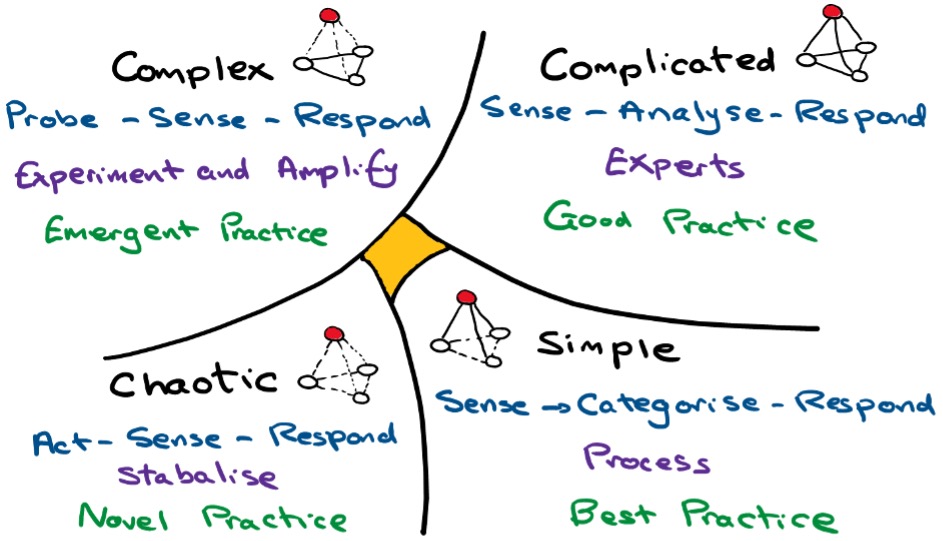It’s time to get smarter about efficiency
Efficiency is a hard sell in the education sector. But it has never been more important. Richard Calvert, Deputy Vice-Chancellor (Strategy and Operations), at Sheffield Hallam University, explains why efficient universities will manage better in the turbulent years ahead.

Overlooking efficiency
I’ll admit to a moment’s hesitation before taking on this series of blog posts on efficiency.
Not because efficiency doesn’t interest me. Certainly not because it doesn’t matter.
But because it still feels like a hard sell in the sector.
It’s a subject too often associated with cost-cutting and managerialism, rather than an everyday part of good leadership in a complex and fast-changing world.
Before joining Sheffield Hallam University in 2016, I spent most of the previous decade as a Chief Operating Officer in Whitehall, where efficiency was never far from the top of the agenda.
The higher education sector’s experience of the austerity years was different, and in many ways deliberately so.
Tuition fee reform, and the absence of student number controls, enabled growth and widened participation, while building the base of graduates which the economy increasingly needed.
The case for prioritising efficiency
But as times have become tougher, this has left a sector which can feel behind the curve in its confidence and ability to embrace efficiency challenges in the way that many others have learned to do.
Does this matter when we continue to attract record numbers of applicants, and the strength of our research base is rarely out of the news these days?
It’s true that efficiency is unlikely ever to be an inspirational rallying-call in an academic institution.
But few of us are immune from the year-on-year impact of some combination of:
- Flat cash fees
- Demographic changes
- Escalating pension costs
- Brexit
And that’s before we take in the impact of COVID and the likely economic and social upheavals yet to come.
Against this background, the resources freed up through smarter and more efficient working may be critical, not only to balancing the books, but also to meeting the changing expectations of both students and staff.
Introducing efficiency
When I arrived at Hallam four years ago, we’d just consulted staff on our new strategy.
Trawling through the feedback, it wasn’t hard to find examples of what didn’t work well at the university. Much of this felt familiar: lack of join-up, slow and cumbersome systems, inconsistent leadership, and so on.
What felt less familiar was our appetite and confidence to address this.
Those who told me what was wrong, were often the first to tell me why it couldn’t be fixed, that solutions had been tried before and failed, or that universities were just different.
Unpicking this, most people were really saying:
- “Sorting that out means taking decisions we’ve always backed away from, or we’ve compromised on, when someone senior objects.”
- Or, “Yes, we could sort that out, but we’d need finance to do this, or HR to do that, or the system won’t let us.”
We’ve come a long way at Hallam in the last four years.
Not everything has been popular, or easy. But I’ve no doubt that we’re smarter and more efficient, and we’re delivering better services for students and staff
Understanding efficiency
What’s got us to this point is not a classic efficiency programme.
Yes, we have:
- Redesigned processes and services
- Reduced costs in some areas
- Better understood our cost and performance data.
But what’s really enabled progress are bigger strategic changes around leadership, organisation and culture, and framing efficiency in the context of what motivates us: our ambition to be a world-leading applied university.
Understanding efficiency in this context, as a strategic enabler rather than a periodic cost-cutting exercise, requires a shift in mindset. It needs clarity of purpose and strategic direction..
It means framing the language of efficiency in a way that makes sense in a higher education setting.
It also means recognising that efficiency in higher education must be about far more than the delivery of core professional services or IT.
Estermann and Kupriyanova’s 2019 report for the European University Association on Efficiency, Effectiveness and Value for Money, provides a compelling analysis of many of the sector-specific issues and challenges, including regulatory and policy drivers.
It usefully draws out themes around academic efficiency, choices driven by wider strategic governance, as well as operational efficiency.
Building a more efficient sector
I’d like to use this series of blog posts to build out these themes.
I will share examples of what’s worked inside and outside the sector, and – back to where I started – perhaps even make efficiency an easier sell!
This more holistic approach may still feel like a challenge in many of our institutions, and our senior teams are often set up without an obvious point of leadership across this agenda.
But I’d suggest that those institutions which find a way to get this right, may just find the turbulence of the next few years a little easier to manage.
Richard Calvert is the Deputy Vice-Chancellor (Strategy and Operations) at Sheffield Hallam University.
Related Blogs


